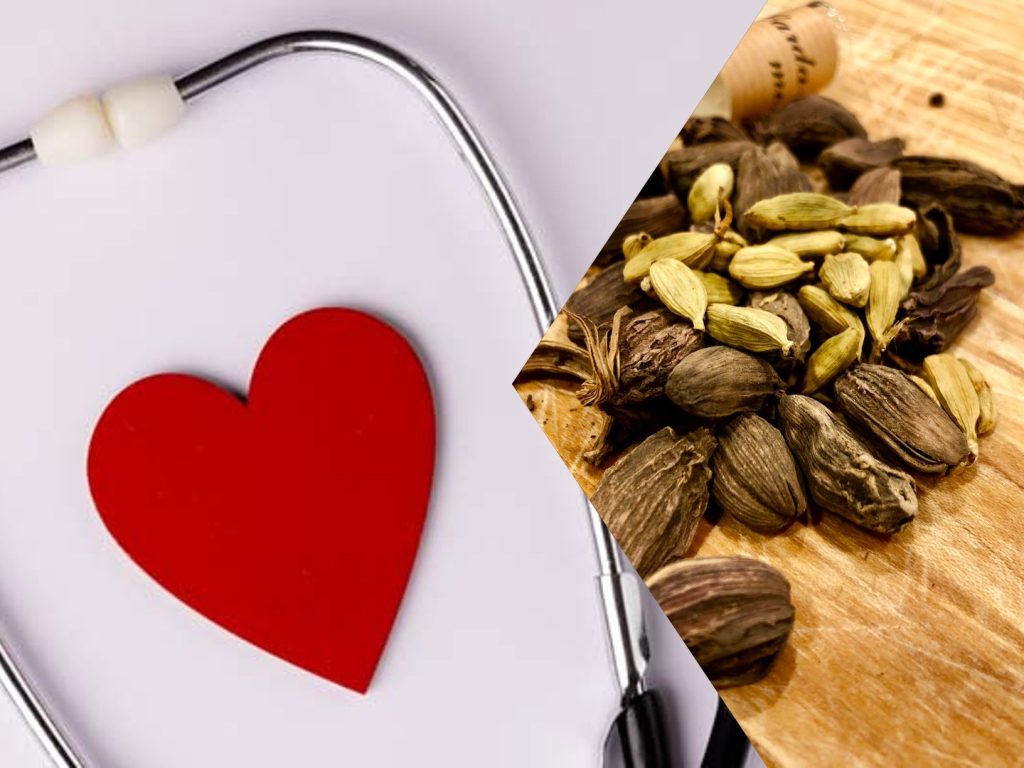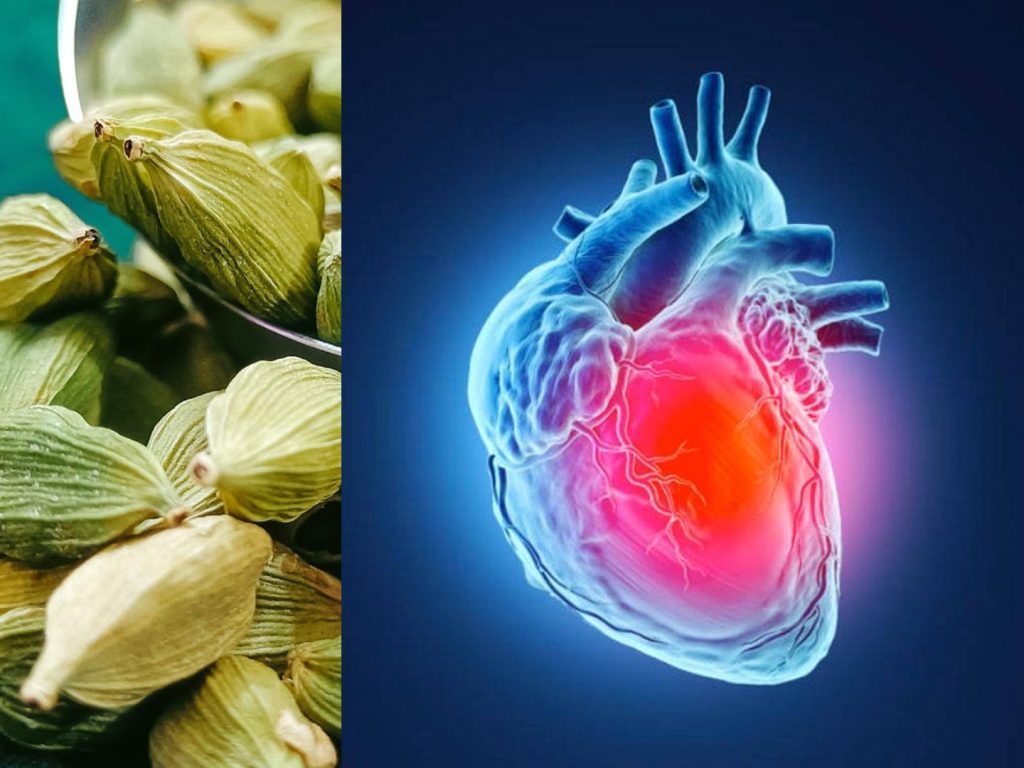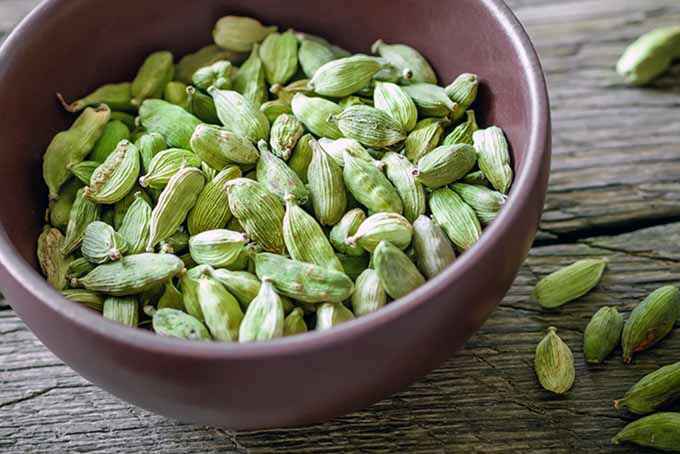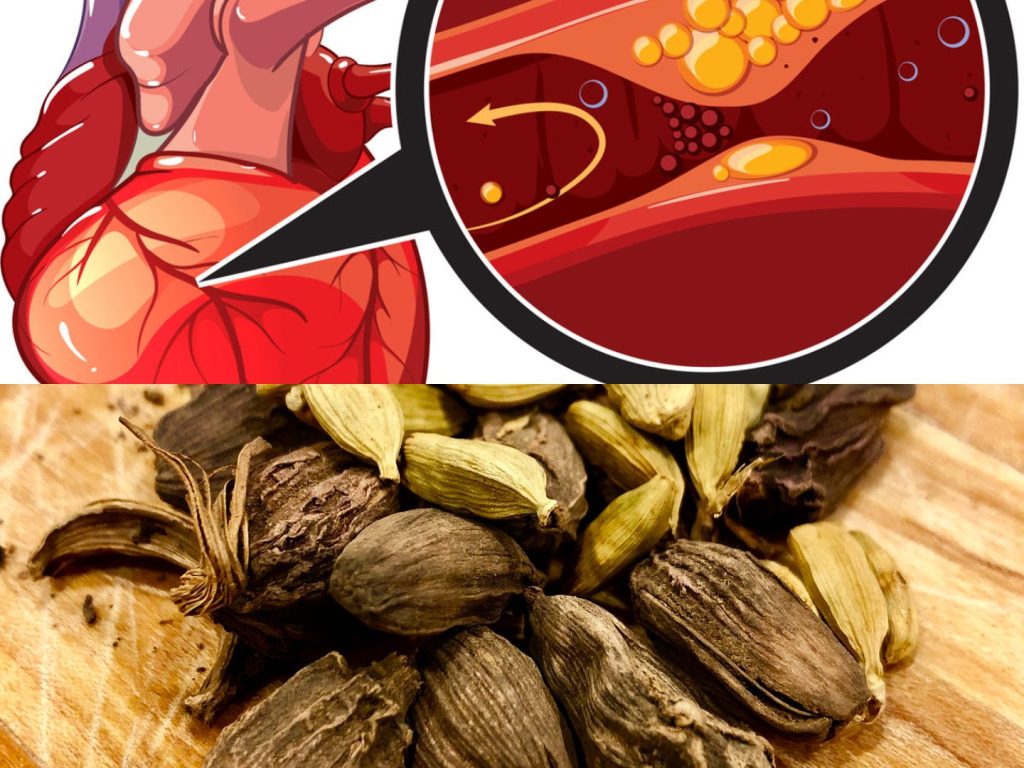Cardamom, often called the “queen of spices,” has been prized for centuries for its aromatic qualities and potential health benefits. Originating from the Indian subcontinent, this spice is a staple in culinary traditions and various traditional medicine practices.
Recent scientific studies have started to unravel the potential benefits of cardamom for heart disease, suggesting that this humble spice might play a significant role in cardiovascular health.

This article delves into the relationship between cardamom and heart disease, exploring its chemical properties, mechanisms of action, and the latest research findings.
The Chemical Composition of Cardamom
Cardamom (Elettaria cardamomum) belongs to the Zingiberaceae family and contains a rich array of bioactive compounds. The primary constituents include:
- Essential oils: Terpenes such as cineole, terpinene, limonene, and sabinene.
- Phenolic acids: Such as caffeic acid and p-coumaric acid.
- Flavonoids: Known for their antioxidant properties.
- Alkaloids: Including choline and carpaine.
These compounds contribute to cardamom’s therapeutic properties, including its potential cardiovascular benefits.
Mechanisms of Cardamom’s Cardiovascular Benefits
Several mechanisms through which cardamom might exert its beneficial effects on heart health have been proposed:

Antioxidant Activity: Cardamom’s high antioxidant content can neutralize free radicals, reducing oxidative stress, a major contributor to heart disease.
Anti-inflammatory Effects: Chronic inflammation is a known risk factor for cardiovascular diseases. Cardamom’s anti-inflammatory properties can help mitigate this risk.
Lipid Profile Improvement: Cardamom has been shown to positively influence lipid profiles by reducing bad cholesterol (LDL) and increasing good cholesterol (HDL).
Blood Pressure Regulation: Cardamom’s diuretic properties can aid in lowering blood pressure, a major risk factor for heart disease.
Antithrombotic Properties: By preventing the formation of blood clots, cardamom can reduce the risk of strokes and heart attacks.
Research Findings on Cardamom and Heart Disease
Antioxidant and Anti-inflammatory Effects
Numerous studies have highlighted cardamom’s potent antioxidant and anti-inflammatory properties. For instance, a study published in the “Journal of Agricultural and Food Chemistry” demonstrated that cardamom extract significantly reduced oxidative stress markers in rats induced with myocardial infarction. The reduction in oxidative stress can help protect the heart muscles from damage and improve overall heart function.
Lipid Profile and Cholesterol Management
A study conducted by Verma et al. (2009) investigated the effects of cardamom on lipid profiles in rats. The results showed a significant decrease in total cholesterol, LDL cholesterol, and triglycerides, along with an increase in HDL cholesterol. These findings suggest that cardamom can be beneficial in managing hyperlipidemia, a critical factor in preventing heart disease.
Blood Pressure Regulation
Hypertension is a major risk factor for heart disease. A clinical trial conducted by Asghar et al. (2012) explored the effects of cardamom powder on blood pressure in individuals with stage 1 hypertension. Participants who consumed cardamom experienced a significant reduction in systolic and diastolic blood pressure. The diuretic effect of cardamom, which helps in the excretion of excess fluids and salts from the body, likely contributes to this blood pressure-lowering effect.
Antithrombotic Properties
Cardamom’s potential to prevent blood clots was examined in a study by Misra et al. (2010). The research indicated that cardamom extract inhibited platelet aggregation, which is crucial in preventing the formation of clots that can lead to heart attacks or strokes. This antithrombotic property adds another layer of cardiovascular protection.

Integrating Cardamom into Your Diet
To harness the cardiovascular benefits of cardamom, it can be easily incorporated into your daily diet. Here are some practical tips:
- Spice Blends: Add ground cardamom to spice blends for curries, stews, and soups.
- Beverages: Use cardamom in teas, coffees, and smoothies for a fragrant and health-boosting twist.
- Baked Goods: Include cardamom in baking recipes such as cookies, cakes, and bread.
- Rice and Grains: Infuse rice and other grains with cardamom for added flavor and health benefits.
- Supplements: Cardamom supplements are available for those who may not prefer its taste but still want to enjoy its benefits.

Safety and Precautions
While cardamom is generally safe for most people when consumed in moderate amounts, there are some considerations to keep in mind:
- Allergic Reactions: Some individuals might be allergic to cardamom and could experience reactions ranging from mild to severe.
- Interaction with Medications: Cardamom might interact with certain medications, especially those affecting blood pressure and blood clotting. It is advisable to consult a healthcare provider before significantly increasing cardamom intake if you are on such medications.
- Dosage: Excessive consumption of cardamom supplements should be avoided without professional guidance, as high doses can have adverse effects.
Detailed Examination of Cardamom’s Mechanisms and Research Findings

Antioxidant Properties Oxidative stress plays a pivotal role in the development and progression of heart disease. It involves an imbalance between free radicals and antioxidants in the body, leading to cellular damage. Cardamom, rich in various antioxidants such as flavonoids and phenolic acids, helps neutralize free radicals, thereby reducing oxidative stress.
Study Highlight: A 2011 study published in the “Journal of Medicinal Food” investigated the antioxidant capacity of cardamom. The researchers found that cardamom extract significantly scavenged free radicals and inhibited lipid peroxidation. This antioxidative action protects the cardiovascular system from oxidative damage, which is crucial in preventing heart disease.
Anti-inflammatory Effects
Chronic inflammation is a known risk factor for atherosclerosis, which can lead to heart disease. Cardamom’s anti-inflammatory properties are attributed to its ability to modulate inflammatory pathways.
Study Highlight: A study published in the “Phytotherapy Research” journal in 2013 examined the anti-inflammatory effects of cardamom in an animal model. The results indicated a significant reduction in inflammatory markers such as TNF-α and IL-6. By mitigating inflammation, cardamom helps maintain the health of blood vessels and prevents the development of atherosclerosis.
Lipid Profile Management
Abnormal lipid profiles, characterized by high levels of LDL cholesterol and triglycerides, along with low levels of HDL cholesterol, are major contributors to heart disease. Cardamom has shown potential in improving these lipid parameters.
Study Highlight: Research published in the “Indian Journal of Biochemistry & Biophysics” in 2009 explored the effects of cardamom on lipid profiles in hyperlipidemic rats. The study found that cardamom supplementation significantly lowered total cholesterol, LDL cholesterol, and triglycerides while increasing HDL cholesterol levels. These findings suggest that cardamom can help in managing cholesterol levels and reducing the risk of heart disease.
Blood Pressure Regulation
Hypertension is a significant risk factor for heart disease. Cardamom’s ability to lower blood pressure is attributed to its diuretic properties, which promote the excretion of excess sodium and fluids, thus reducing blood volume and pressure.
Study Highlight: A clinical trial published in the “Indian Journal of Biochemistry & Biophysics” in 2012 assessed the effects of cardamom powder on blood pressure in individuals with stage 1 hypertension. Participants who consumed 3 grams of cardamom powder daily for 12 weeks experienced a significant reduction in both systolic and diastolic blood pressure. This study highlights the potential of cardamom as a natural remedy for hypertension.
Antithrombotic Properties
The formation of blood clots, or thrombosis, can lead to heart attacks and strokes. Cardamom’s antithrombotic properties help in preventing the formation of these dangerous clots.
Study Highlight: A study published in the “Journal of Ethnopharmacology” in 2010 investigated the effects of cardamom extract on platelet aggregation. The results showed that cardamom inhibited platelet aggregation, thus reducing the risk of clot formation. This antithrombotic effect adds to cardamom’s cardiovascular protective properties.
Practical Applications and Recipes
Incorporating cardamom into daily life can be both delicious and beneficial for heart health. Here are a few recipes to get started:
Cardamom-Infused Water:
- Ingredients: 5-6 cardamom pods, 1 liter of water
- Instructions: Slightly crush the cardamom pods to release their flavor. Add them to a liter of water and let it sit
Conclusion
Cardamom’s potential benefits for heart disease are promising, supported by a combination of traditional usage and emerging scientific research. Its antioxidant, anti-inflammatory, lipid-lowering, blood pressure-regulating, and antithrombotic properties make it a valuable spice in the fight against cardiovascular disease. Incorporating cardamom into a balanced diet, along with other heart-healthy practices, can contribute to better heart health and overall well-being.
Continued research is essential to fully understand the extent of cardamom’s cardiovascular benefits and to establish standardized guidelines for its therapeutic use. However, the current evidence suggests that cardamom is a potent spice with significant potential to support heart health, making it a worthy addition to any heart-conscious individual’s diet.
